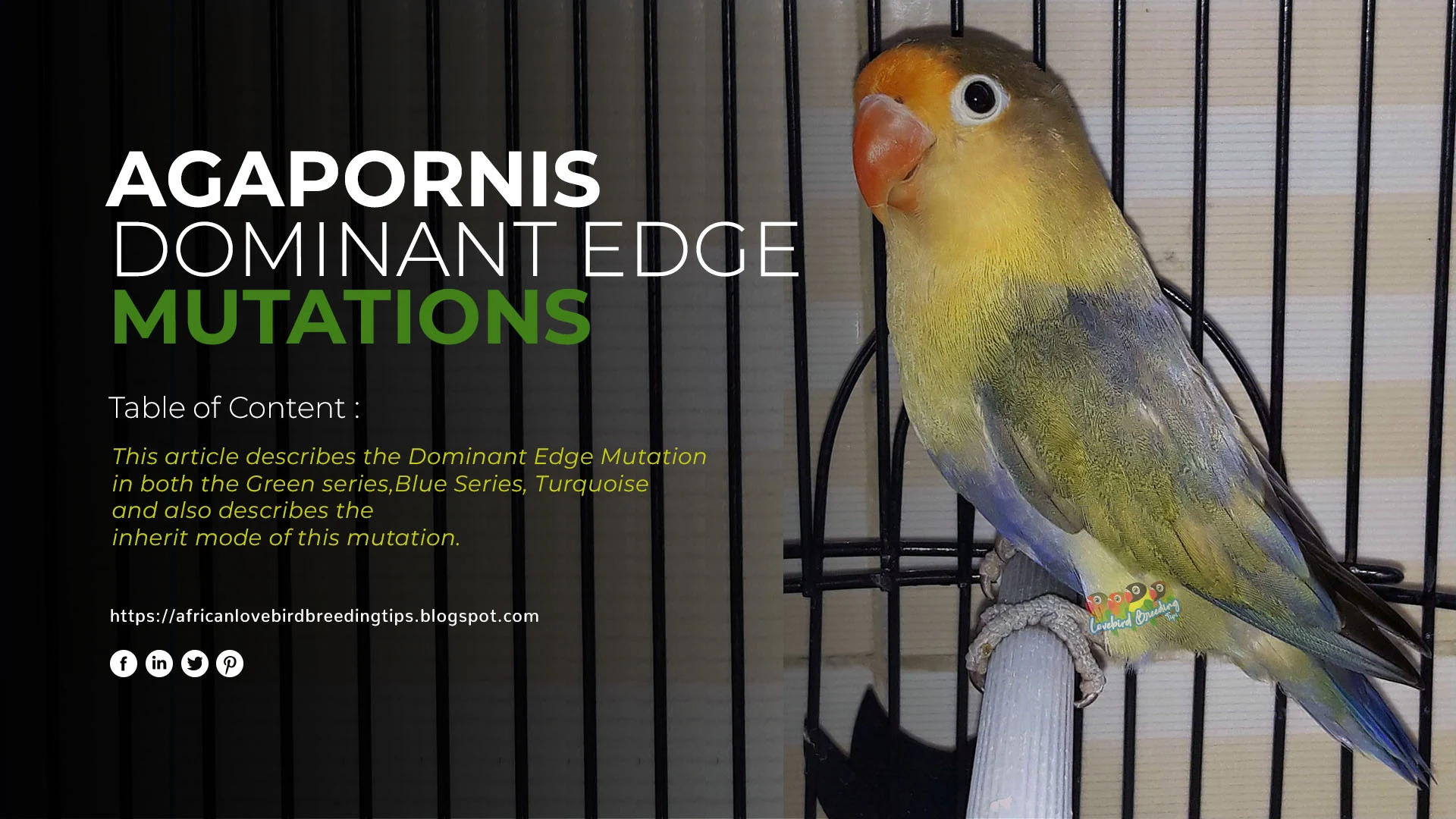
Lovebird dominant edge mutation In some countries, the mutation was also known as Spangle.
But long before the name of dominant Edge was given, Lovebird was called Silver Lovebird for the Blue Series and Golden Cherry Lovebird for the Green series.
New to his legacy, Lovebird was given the name Dominant Edge. In theory, Dominant edge mutation is caused by partial reduction of melanin pigment in the feathers.
This creates a more faded color than normal and forms a curved pattern on the fur edges of the mantle (back and wing).
The dominant name Edge was also taken because each Edge had a curved pattern. If noted as the fur is inverted.
There are white or silver accents for the blue series birds and yellow accents for the green series.
Comparison of SF (single factor) vs. DF (double factor) in dominant-edged lovebird mutation
Dominant Edged SF (single factor)
 |
Green Dominant Edge Lovebird Mutations SF |
Look at the picture; the dominant edge single factor (SF) on the Lovebird Green series arches is sharper on each Edge of the feather.
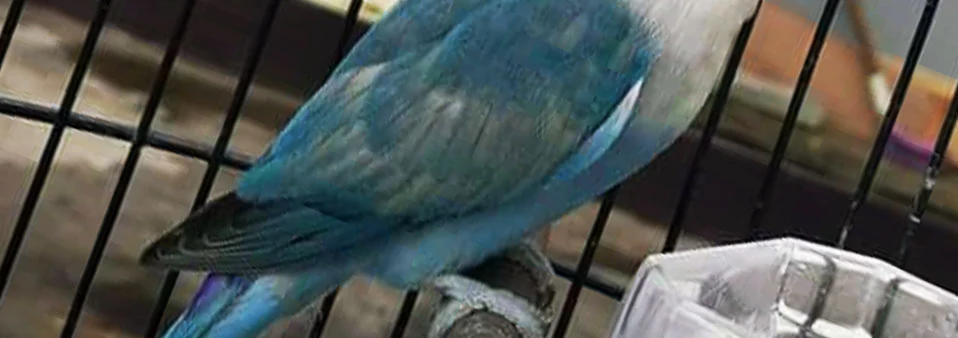 |
Blue Dominant Edge Lovebird Mutations SF |
The picture shows that the dominant edge single factor (SF) on the Lovebird Blue Series is a sharper curved pattern on each Edge of the fur, and the silver color is more diminutive.
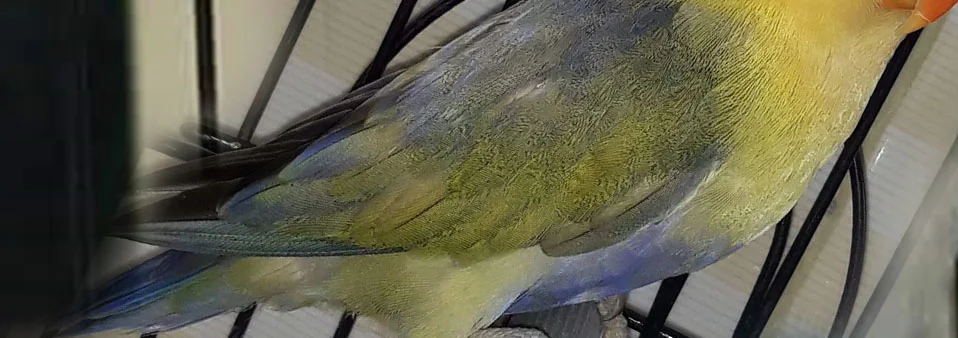 |
Turquoise Dominant Edge Lovebird Mutations SF |
Look at the picture; the dominant edge single factor (SF) on the Lovebird Turquoise or par blue curved pattern is sharper on each fur Edge and slightly yellow in color.
Dominant-edged DF (double factor)
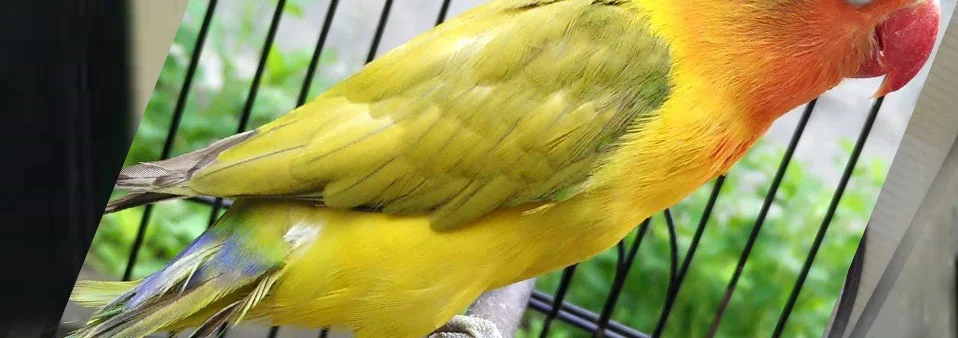 |
Green Dominant Edge Lovebird Mutations DF |
At Lovebird Green Dominant Edge (DF), The original fur is increasingly fading to give an overall yellow
impression.
Leaves a subtle pattern on the wing feather edges. And the color of the fur faded into a clear
yellow.
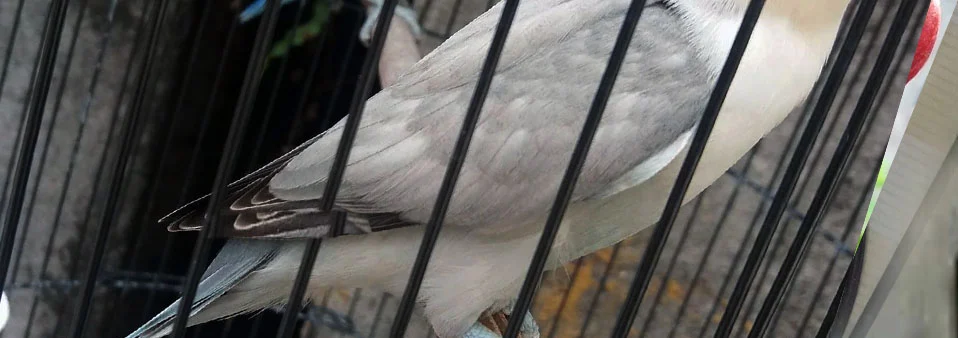 |
Blue Dominant Edge Lovebird Mutations DF |
At Lovebird Blue Dominant Edge (DF), The blue has faded and is more inclined to the silver or grey color even though the fur edges are fixed and the white fur is faded.
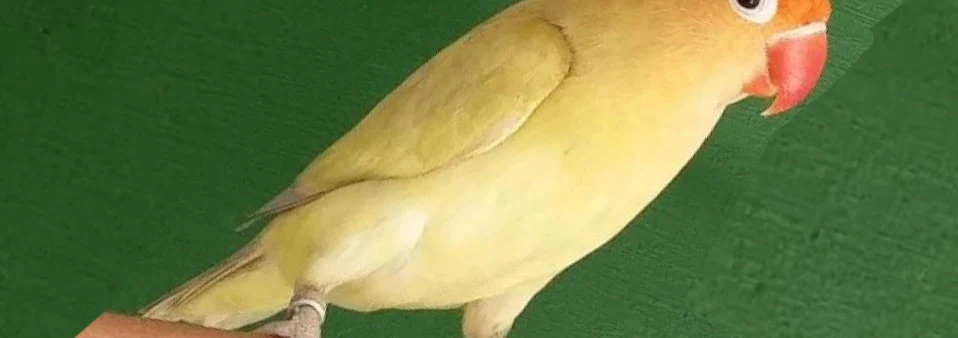 |
Turquoise par blue Dominant Edge Lovebird Mutations DF |
At Lovebird Turquoise Dominant Edge (DF), The original fur is increasingly fading to give an overall yellow
impression.
Leaves a subtle pattern on the wing feather edges. And the color of the fur faded into
a clear yellow.
The dominant edge mutation also experienced a double factor and a single factor. A bird with a double factor will
fade the pol on its fur edges.
Meanwhile, a single-factor bird has a contrasting pattern or patterns
forming curves on the edges of the feathers.
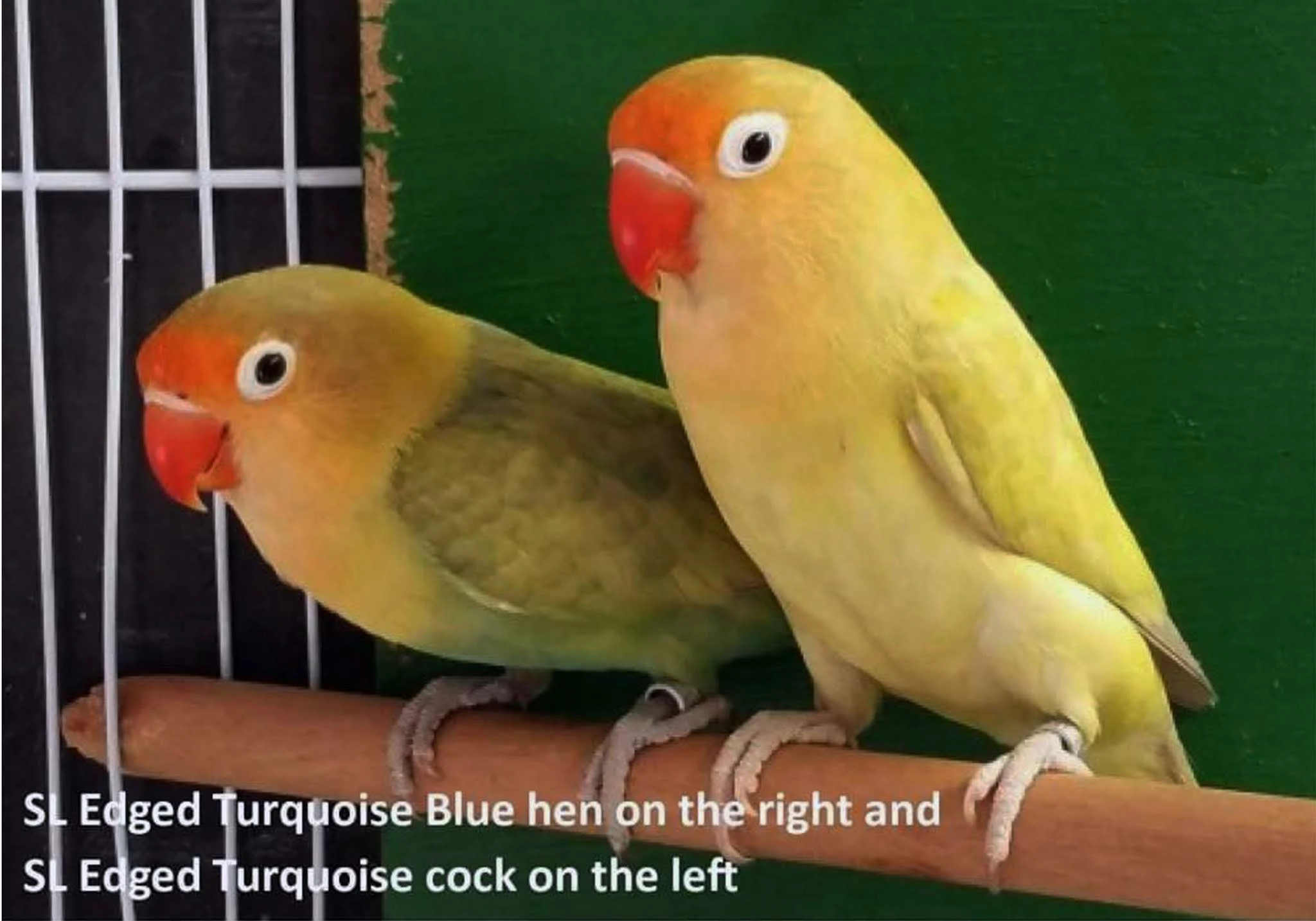 |
Difference between turquoise Parblue Dominant Edge Lovebird SF and DF |
The other feature is on the chest. There is still an accent on the original color for the dominant edge single
factor (SF) color in the fur, slightly greenish to the dominant green Edge and slightly bluish to the dominant
edge blue.
As for the dominant Edge Double Factor (DF) color mutation on the full hollow chest,
plumage decreased melamine. It is white or silver for the blue dominant Edge and yellow color for the green
dominant Edge.
The dominant edge mutation is often associated with Sex-Linked (SL) theory, such as Opaline. But it could be more
specific.
Many argue that the dominant edge mutation is the same as the Greywing mutation. But they are
different birds. You can see that the dominant Edge always leaves its original color on the tail feathers.
Meanwhile, the Greywing mutation is an actual yellow section of the tail fur. The wing pattern may be some
similarities, but the greywing has a cleaner primary fur that resembles a white one.
I will discuss a
"Greywing Lovebird mutation" a few days later, so you keep visiting my blog.
